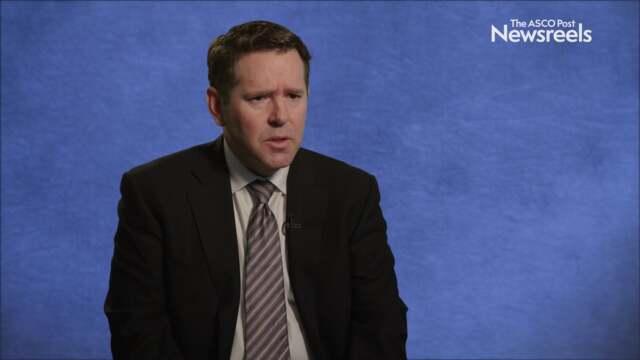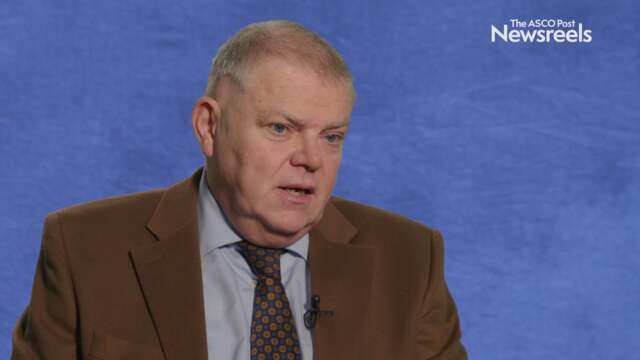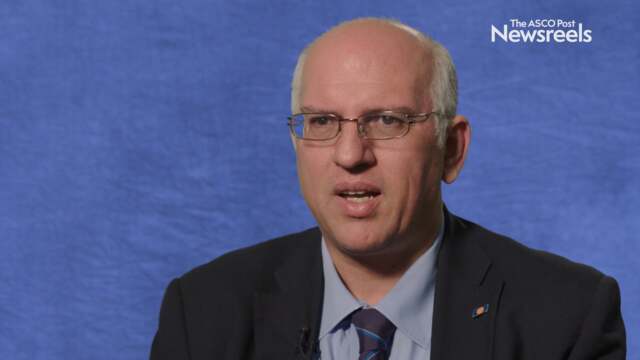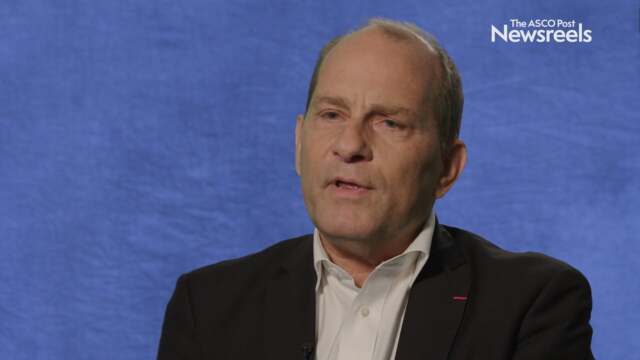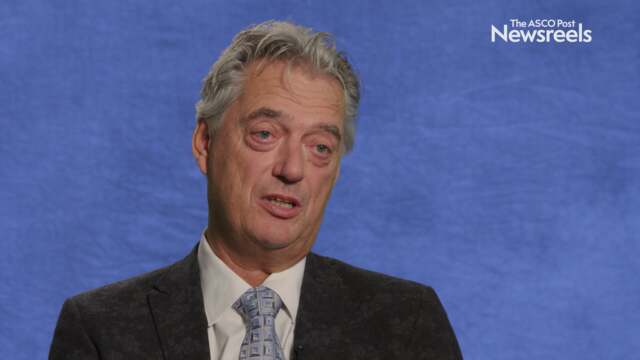Ezra E.W. Cohen, MD, on Head and Neck Cancer: Using Curative Immunotherapy
ESMO 2018 Congress
Ezra E.W. Cohen, MD, of the University of California, San Diego, discusses the effectiveness of anti–PD-1 therapy in patients with recurrent head and neck cancer and the studies that might help predict who will benefit, how to combine agents, and ways to reduce long-term toxicity.
Karl Lewis, MD, of the University of Colorado, discusses a phase II study of cemiplimab in patients with advanced basal cell carcinoma who experienced progression of disease on, or were intolerant of, prior hedgehog pathway inhibitor therapy.
For more information about this ongoing trial, visit clinicaltrials.gov
ClinicalTrials.gov ID: NCT03132636
Johan F. Vansteenkiste, MD, PhD, of Catholic University Leuven, summarizes a session he co-chaired that included discussion of translating advances in stage IV disease to nonmetastatic lung cancer, TKI approaches in early-stage disease, and integrating immunotherapy and TKIs in stage III disease management.
Paolo A. Ascierto, MD, of Istituto Nazionale Tumori–Fondazione Pascale, discusses the breakthroughs in melanoma treatment and the challenges of managing toxicities, especially endocrine and neurologic side effects, which can require lifetime hormone replacement and may cause permanent dysfunction.
Alexander M.M. Eggermont, MD, PhD, of Gustave Roussy, discusses findings from recent adjuvant trials in high-risk melanoma, and what the NCCN Guidelines recommend in light of such data as results on dabrafenib plus trametinib vs anti–PD-1 treatments (nivolumab or pembrolizumab) and the new standard for wild-type disease.
Ronald de Wit, MD, PhD, of the University Medical Center Rotterdam, discusses phase II findings on the efficacy of pembrolizumab in bacillus Calmette-Guérin–unresponsive bladder cancer with high risk for disease progression.
